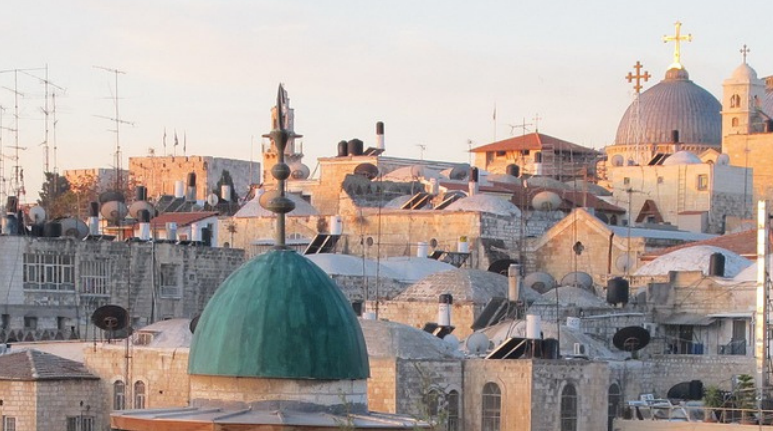The Gulf region, encompassing countries such as Saudi Arabia, Kuwait, Bahrain, Qatar, Oman and the United Arab Emirates, is often celebrated for its breathtaking landscapes, economic prosperity, and cultural richness. Beyond its shimmering skyscrapers and thriving industries, the Gulf region holds a unique place in the global mosaic, bearing a resemblance to Jerusalem in its multifaceted significance and diversity of people and religions.

A Confluence of Cultures and Religions
Much like Jerusalem, the Gulf region serves as a melting pot of cultures, ethnicities, and religions. Expatriates from around the world have flocked to these nations in pursuit of economic opportunities, creating a harmonious blend of traditions and beliefs. The Gulf’s cosmopolitan cities like Dubai are testimony to this harmonious coexistence, where individuals from diverse backgrounds live, work, and thrive side by side. Religious
Tolerance and Coexistence
Jerusalem has long been revered as a center of religious significance for Judaism, Christianity, and Islam. Similarly, the Gulf region is home to a rich tapestry of religious beliefs. While Islam is the predominant religion, the region welcomes and respects various faiths. Worshipers of all denominations find solace and acceptance within the Gulf’s welcoming embrace.
Global Economic Hubs
Jerusalem has historical and religious significance, while the Gulf region’s significance lies in its contemporary economic prowess. The Gulf’s strategic location, vast oil reserves, and forward-thinking economic policies have transformed its cities into global economic powerhouses. Dubai, for instance, is a global hub for trade, finance, and tourism, 8 attracting business leaders and visitors from every corner of the world.
Cultural Diversity and Expression
Much like Jerusalem’s Old City with its myriad quarters, each reflecting a different culture and way of life, the Gulf region offers a diverse cultural landscape. From traditional souks to modern art galleries, and from traditional dance to international film festivals, the Gulf embraces a dynamic cultural scene that celebrates both heritage and contemporary expression.
A Vision for the Future
Both Jerusalem and the Gulf region have a shared vision for the future. Jerusalem seeks to serve as a beacon of hope and reconciliation, bridging divides through dialogue and understanding. In a similar vein, the Gulf nations are actively working towards diversifying their economies, fostering innovation, and promoting global collaboration. Their shared commitment to sustainable development and international cooperation positions them as vital players on the global stage.
The Gulf region, with its global significance, cultural diversity, and religious coexistence, mirrors Jerusalem in its multifaceted appeal. Its open and welcoming approach to other cultures and religions – while also maintaining its own identity – is parallel to Jerusalem’s ability to do the same.
As these nations continue to evolve and thrive, they serve as reminders of the immense potential for unity, tolerance, and progress in our ever-connected world.
In an era where diversity is celebrated and global interdependence is the norm, the Gulf region stands as a shining example of the beauty that can emerge when people from diverse backgrounds come together with a shared vision of prosperity and harmony.
